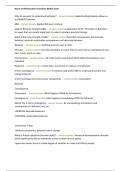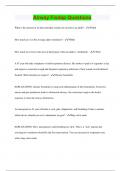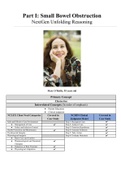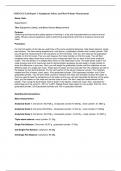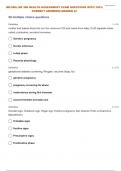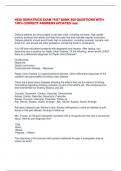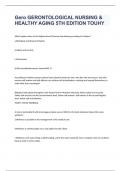Exam (elaborations)
Board Certified Autism Technician (BCAT) Exam 200 questions with all correct answers
- Course
- Institution
Board Certified Autism Technician (BCAT) Exam 200 questions with all correct answers/Board Certified Autism Technician (BCAT) Exam 200 questions with all correct answers/Board Certified Autism Technician (BCAT) Exam 200 questions with all correct answers
[Show more]
